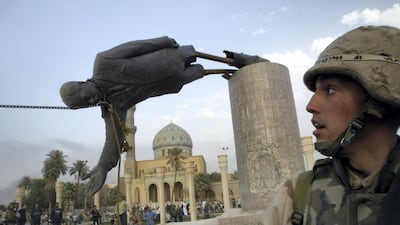A British former prosecutor who led an investigation into the corrupt brothers at the heart of a global cash-for-contracts scandal won his case for unfair dismissal after being fired over a row with an FBI officer in a London pub.
Tom Martin challenged the UK's Serious Fraud Office after a tribunal found that US agencies wanted him removed from his post. The case involved a dispute over the handling of an international case against the Ahsani brothers, who ran the Monaco-based consultancy Unaoil.
Mr Martin, who led the British side of the inquiry into Unaoil, was sacked in December 2018 over allegations that he swore at an FBI agent and called him a spy and a quisling after a meeting about the case at the US embassy in London.
Mr Martin claimed that the US and lawyers for the brothers wanted him removed from the case to thwart British efforts to extradite Saman Ahsani to Britain from Rome in 2018.
The employment tribunal found that Mr Martin probably did not use expletives and said that no reasonable employer should ignore the possibility that a delayed complaint into the incident could be triggered by ulterior motives. The SFO said that it was considering the judgment and its options.
Mr Ahsani, the former chief operating officer of Unaoil, was subsequently sent to the US where he struck a deal with prosecutors to plead guilty, and a reduced sentence in return for providing information.
His brother, Unaoil's former chief executive Cyrus Ahsani, pled guilty to being part of a multimillion-dollar bribery scam over two decades to help major western companies win projects in the Middle East, central Asia and Africa.
Three former Unaoil executives were sentenced to jail in the UK last year after a five-year inquiry by the SFO for bribing officials to clinch oil projects in Iraq worth $1.7 billion.
But the Ahsanis slipped through their hands and a judge last year rebuked the US head of the SFO for her dealings with a private investigator who was employed by the Ahsanis.
This month the SFO lost a court battle over its attempts to secure documents from US engineering company KBR as part of a connected corruption inquiry.


